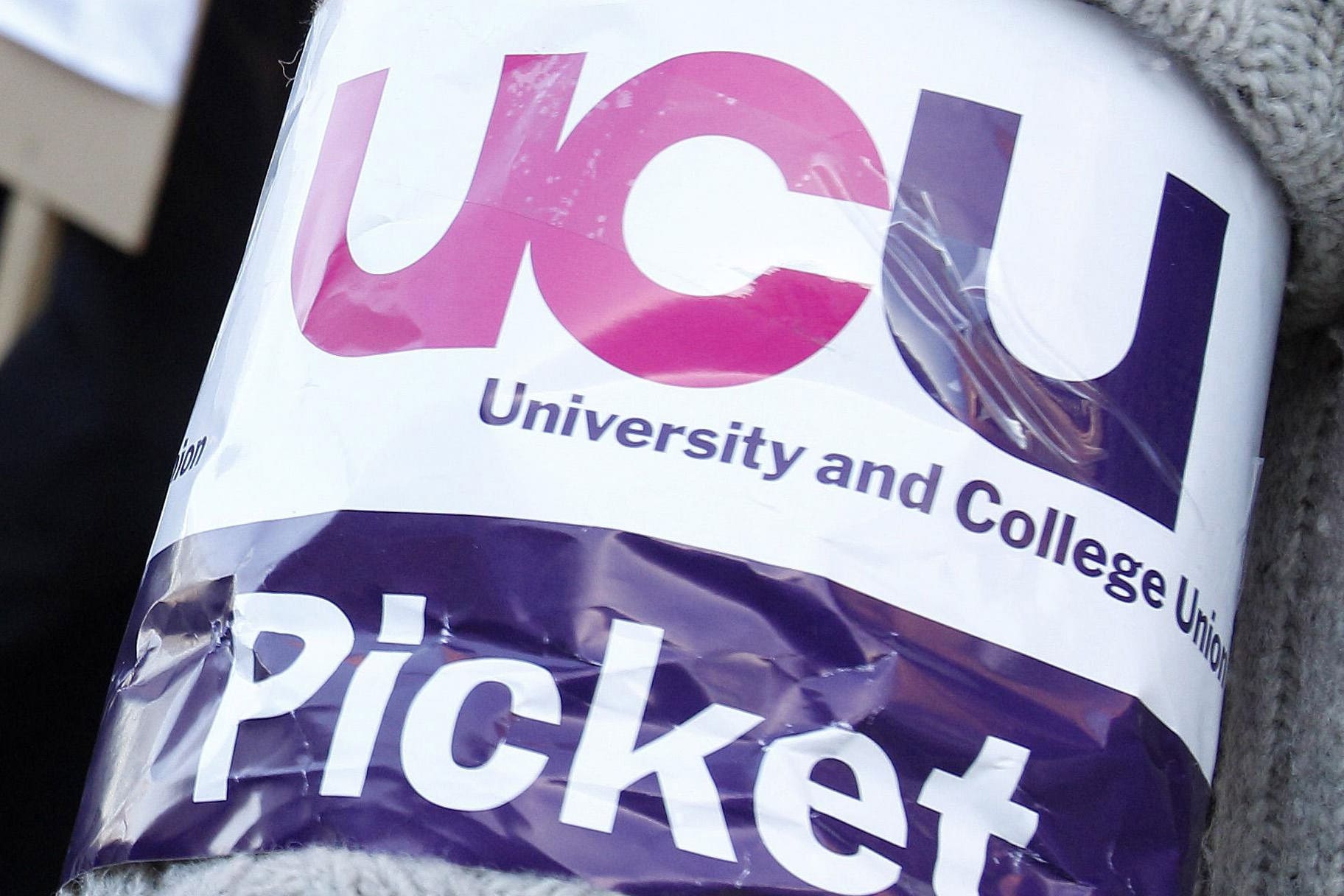University staff vote in favour of strikes
Universities could face strikes after union members voted in favour of action.

Your support helps us to tell the story
From reproductive rights to climate change to Big Tech, The Independent is on the ground when the story is developing. Whether it's investigating the financials of Elon Musk's pro-Trump PAC or producing our latest documentary, 'The A Word', which shines a light on the American women fighting for reproductive rights, we know how important it is to parse out the facts from the messaging.
At such a critical moment in US history, we need reporters on the ground. Your donation allows us to keep sending journalists to speak to both sides of the story.
The Independent is trusted by Americans across the entire political spectrum. And unlike many other quality news outlets, we choose not to lock Americans out of our reporting and analysis with paywalls. We believe quality journalism should be available to everyone, paid for by those who can afford it.
Your support makes all the difference.More than 70,000 university staff at 150 universities could strike after union members voted in favour of action.
The University and College Union (UCU) said the result of a ballot on Monday is a clear indication of the anger felt by staff over pay, conditions and pensions.
The UCU, which represents a large number of academics, lecturers, researchers, managers, administrators and other staff, has now called on vice chancellors to enter negotiations in order to avoid disruption.
UCU general secretary Jo Grady said: “Today history has been made by our members in universities, who in huge numbers have delivered an unprecedented mandate for strike action.
“The vice chancellors who run universities have repeatedly and in a co-ordinated fashion come after our members.
“Well, now it’s 150 bosses against 70,000 university workers who are ready and willing to bring the entire sector to a standstill if serious negotiations don’t start very soon.
“University staff are crucial workers in communities up and down the UK. They are sending a clear message that they will not accept falling pay, insecure employment and attacks on pensions. They know their power and are ready to take back what is theirs from a sector raking in tens of billions of pounds.”
The union said university staff are facing poverty amid the cost-of-living crisis, and has demanded a 12% pay uplift – in line with inflation, according to the Retail Price Index (RPI) – plus an additional 2%.
In May, the Universities and Colleges Employers Association (UCEA), which represents higher education institutions in pay talks, announced a scheme of graded pay rises, starting at 9% for the lowest paid staff and reducing to 3% for those on higher salaries, which came in in August.
The UCU also said university staff, on average, work an additional two days per week unpaid due to excessive workloads, while a third of academic staff are on insecure contracts.
University staff are crucial workers in communities up and down the UK. They are sending a clear message that they will not accept falling pay, insecure employment and attacks on pensions
Meanwhile it is fighting cuts to a pension scheme, the Universities Superannuation Scheme (USS), which the union said would mean a typical member would lose 35% of their guaranteed retirement income.
Members voted on two separate ballots: for pay and working conditions, and cuts to pensions.
In the pay and working conditions ballot, the Yes vote for strike action was 81.1% and the turnout was 57.8%.
In the pensions ballot, the Yes vote for strike action was 84.9% and the turnout was 60.2%. Staff also voted Yes for action short of a strike in both ballots.
UCEA chief executive Raj Jethwa said the result was “disappointing”.
He said: “UCEA and its member HE [higher education] institutions want to work with UCU and other trade unions to support staff and students and to avoid disruptive industrial action.
“However, there needs to be a realistic assessment of what is possible.”
Mr Jewtha said higher education institutions were facing rising costs and most were seeing incomes fall.
He added pay rises put jobs at risk and that he hoped UCU “will carefully consider how to react to this ballot outcome”.